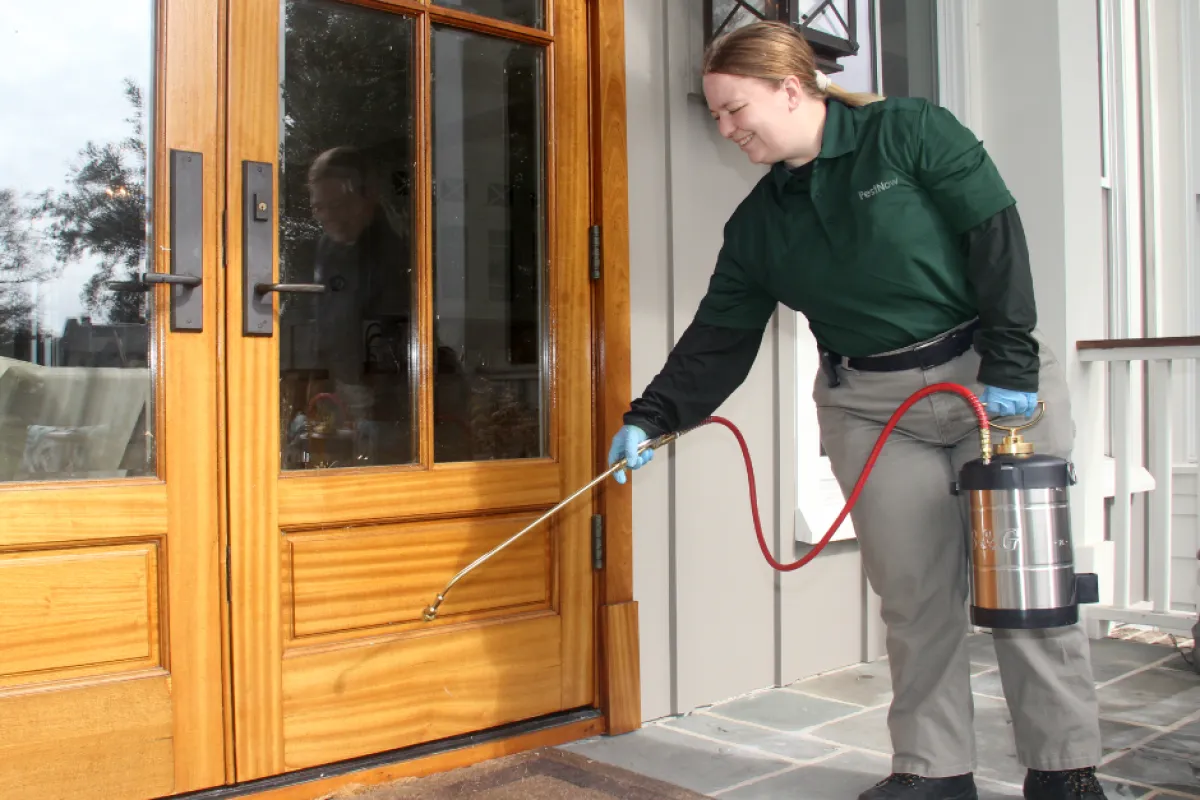Choose expert Pest Control in Port Charlotte for a clean space.
Choose expert Pest Control in Port Charlotte for a clean space.
Blog Article
Exploring Ingenious Methods and Products for Effective Bug Control
The landscape of insect control is evolving, noted by the appearance of cutting-edge methods and products made to improve performance and sustainability. From wise catches furnished with sophisticated tracking systems to organic approaches that utilize natural predators, these advancements offer a paradigm change in how we approach pest management.
Smart Traps and Keeping Track Of Solutions
How can contemporary technology enhance insect monitoring? One significant advancement is the advancement of smart traps and keeping track of systems, which offer real-time information and analytics for efficient insect control. These systems utilize sensing units and wireless modern technology to detect parasite activity, signaling property managers and parasite control experts to invasions prior to they rise.
Smart catches are furnished with features such as lure stations that attract parasites and capture them successfully. These catches can be checked from another location, permitting prompt interventions and lessening the requirement for considerable chemical applications. The integration of device discovering algorithms makes it possible for these systems to set apart between target parasites and non-target species, boosting the accuracy of parasite control steps.
Furthermore, the data accumulated from clever traps can be evaluated to identify patterns in bug actions and environmental aspects adding to invasions (Pest Control in Port Charlotte). This information is vital for developing targeted pest administration approaches tailored to particular environments. By embracing clever traps and monitoring systems, pest control professionals can improve their operational efficiency and reduce the environmental influence of pest administration, ultimately resulting in safer and much more lasting practices in the market
Organic Pest Control Techniques
Making use of all-natural predators and bloodsuckers, organic insect control methods offer an eco friendly choice to chemical therapies. This approach includes the introduction or enhancement of specific microorganisms that can naturally regulate bug populaces, thereby reducing dependence on synthetic chemicals. Usual examples include making use of ladybugs to manage aphid problems and parasitical wasps to target caterpillars.

Organic control can be categorized into 3 major approaches: timeless, augmentative, and conservation. Timeless biological control entails importing all-natural enemies from the parasite's native environment, while augmentative control entails boosting the population of existing all-natural enemies via releases. Conservation techniques focus on developing conditions that support these advantageous microorganisms in the ecosystem.
The performance of biological insect control pivots on understanding the complex interactions within environments. It frequently calls for a detailed analysis of parasite characteristics and the life process of both the bugs and their natural adversaries. While organic approaches may not offer prompt results like chemical alternatives, they contribute to long-term parasite administration and ecosystem wellness. As understanding of ecological concerns grows, biological pest control approaches are significantly recognized for their lasting duty in incorporated pest management programs.
Eco-Friendly Chemical Alternatives
Environmentally friendly chemical alternatives offer a practical remedy for parasite monitoring that lessens environmental effect while properly managing bug populaces. These choices are derived from all-natural sources and Find Out More are meticulously created to target specific insects without hurting useful organisms, making them an essential part of lasting insect control techniques.
Among one of the most effective environmentally friendly choices are plant-based insecticides, such as neem oil and pyrethrin, which are stemmed from the seeds and blossoms of different plants. These compounds interfere with the life process of bugs, reducing their populations without the toxic impacts linked with traditional chemicals - Pest Control in Port Charlotte. Additionally, crucial oils like peppermint and clove oil exhibit repellent homes, better enhancing their energy in parasite management

Additionally, environment-friendly chemical choices often damage down faster in the atmosphere, minimizing the danger of dirt and water contamination. This particular aligns with the enhancing consumer need for sustainable techniques in farming and metropolitan parasite control. As research study remains to advancement, the development of cutting-edge green solutions will further boost effectiveness and expand application locations, making it possible for pest monitoring experts to take on greener, more accountable techniques in their methods while safeguarding human health and wellness and the environment.
Scent Disturbance Methods
One more ingenious approach in sustainable parasite management is using pheromone interruption techniques. These methods exploit the natural chemical signals, or Click Here scents, that bugs utilize for communication, particularly in mating behaviors. By interfering with Get the facts these signals, insect populaces can be properly managed without resorting to hazardous chemicals.
Scent catches are generally utilized in this approach. Over time, this can lead to a considerable decline in parasite populations.

Integrated Insect Monitoring Approaches
Effective bug control often needs an extensive approach, and Integrated Pest Monitoring (IPM) techniques provide a framework for achieving this objective. IPM integrates various management techniques to decrease bug populaces while lowering dependence on chemical pesticides. This complex strategy begins with comprehensive tracking and recognition of parasites, enabling for targeted interventions based on particular parasite stress.
Social methods, such as plant turning and hygiene, play a vital duty in stopping parasite facility. Biological controls, consisting of all-natural killers and parasitoids, are employed to keep insect populations at manageable degrees. When required, discerning chemical therapies are used, stressing reduced toxicity to non-target species and the setting.
By using this alternative strategy, IPM not only improves insect control effectiveness however also adds to long-term eco-friendly equilibrium. Inevitably, Integrated Parasite Management stands for a forward-thinking remedy that aligns farming productivity with environmental stewardship, making it necessary in modern insect control approaches.

Conclusion
In final thought, the combination of ingenious techniques and items for reliable parasite control represents a substantial innovation in lasting bug monitoring. Smart catches and keeping track of systems, biological bug control approaches, eco-friendly chemical alternatives, and scent disruption strategies jointly improve the performance of insect administration approaches.
Report this page